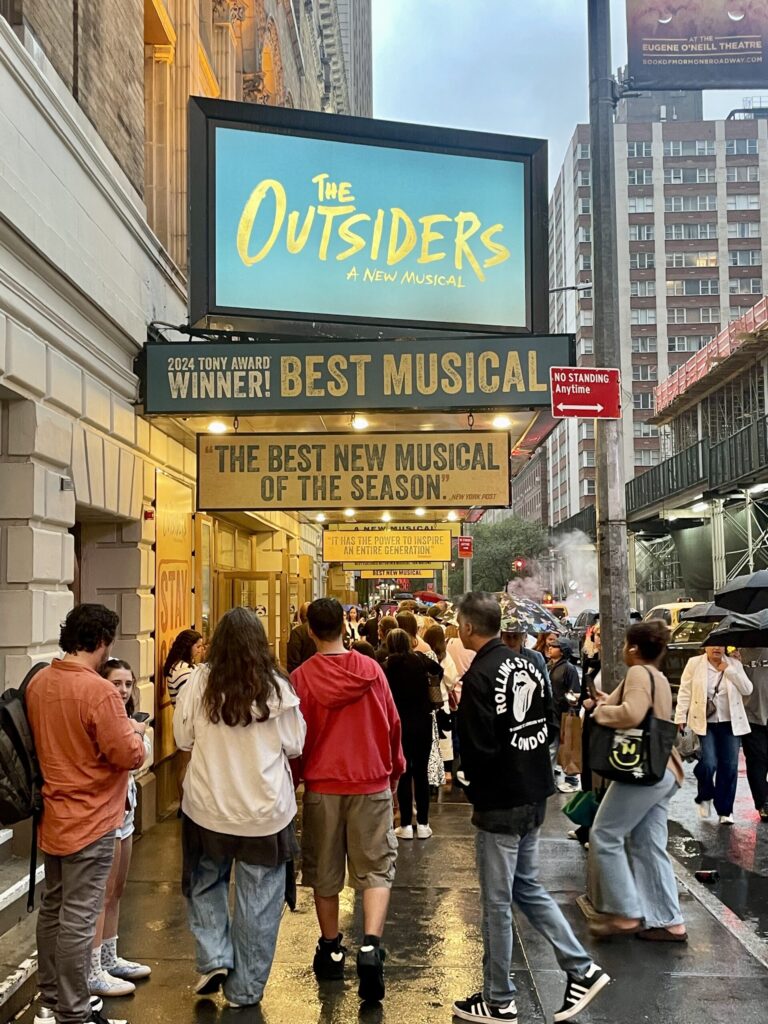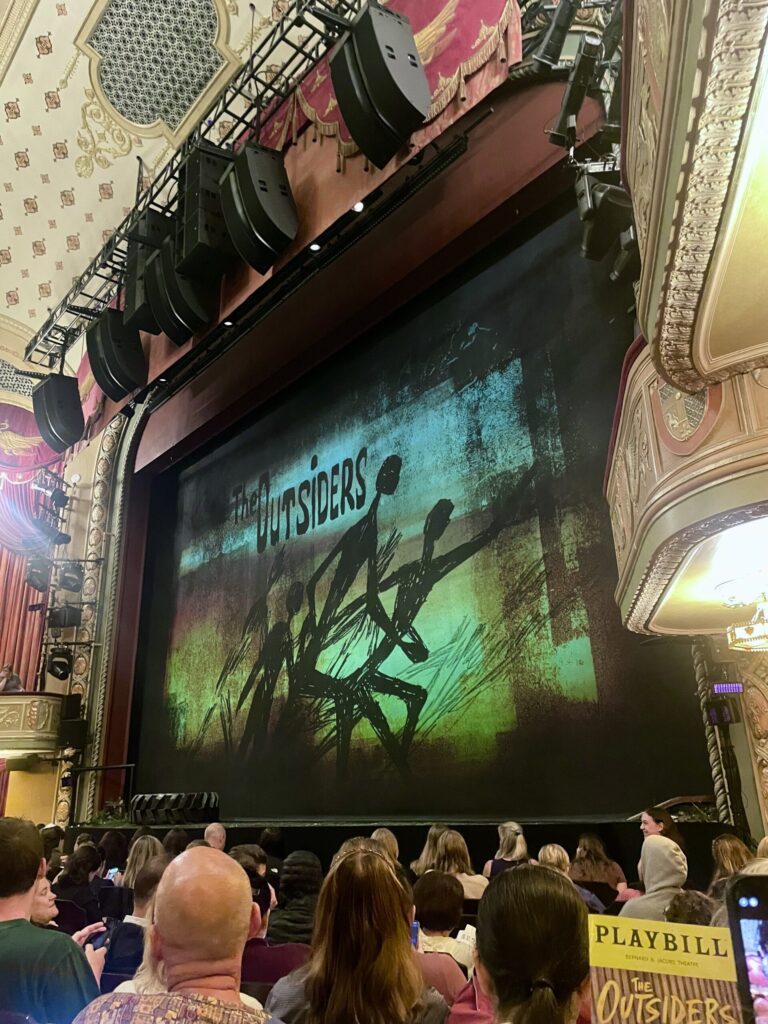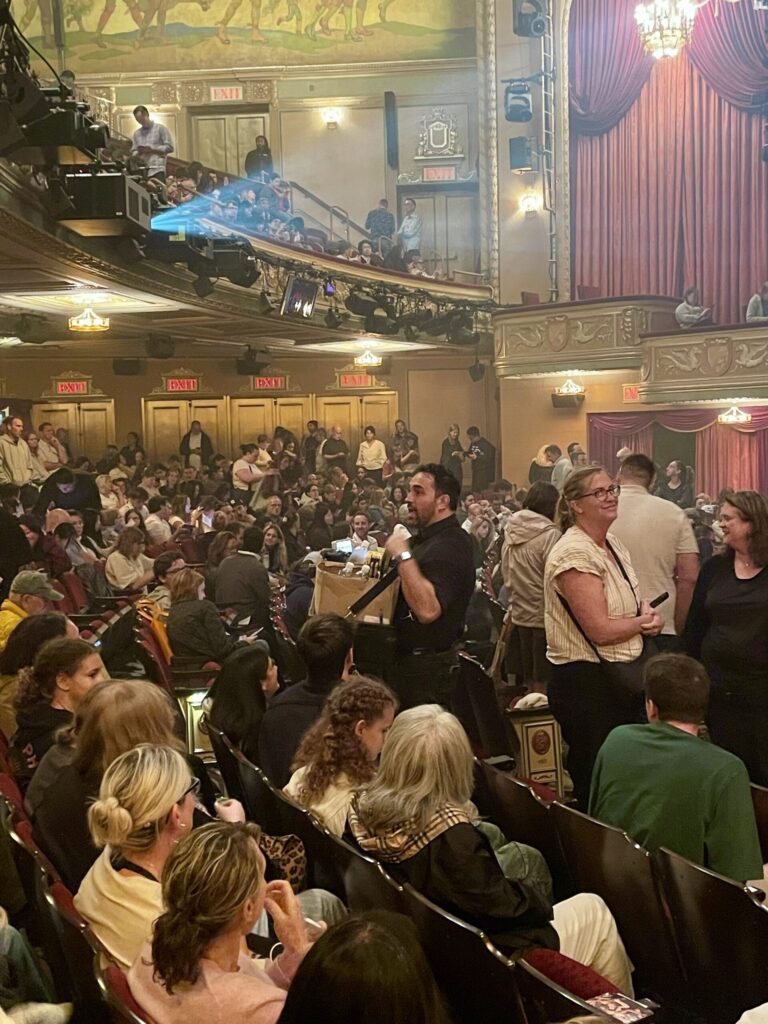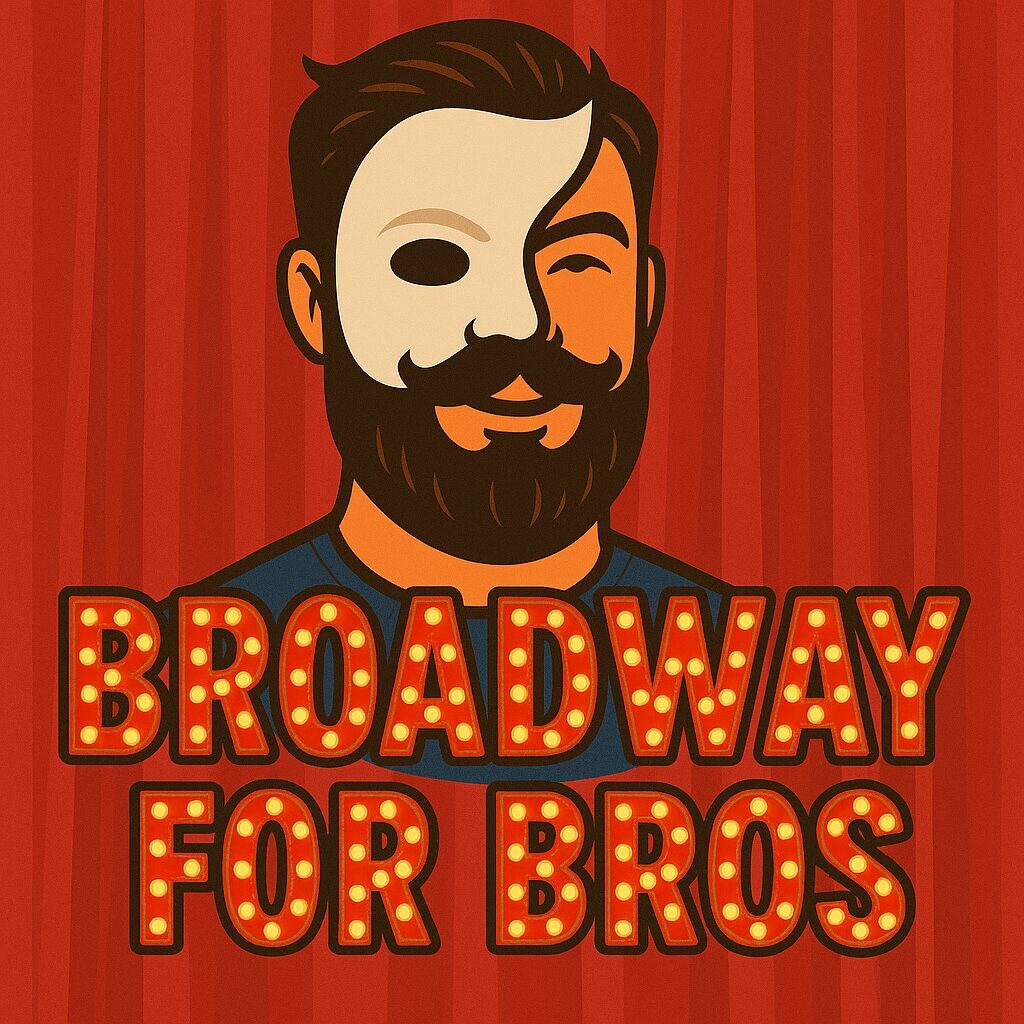As a GenXer, I often find myself in conversations with friends about how well shows, songs, and movies from our youth have aged. It’s tough to think of yourself as a good person and then remember how much you once loved art that now feels clearly misogynistic, homophobic, or racist. If you’re a fan of Sixteen Candles you know exactly what I’m talking about. Oooof.
Some stories, however, are timeless. The Outsiders on Broadway somehow taps into the modern zeitgeist of America while being rooted in a time and place—Tulsa, Oklahoma in 1967—that feel more tangible than ever. The story of the haves versus the have-nots is nothing new, but poverty in America has a uniqueness of its own, and the rivalry between the Greasers and the Socs exposes how the cycle of classism and tribalism in American culture is a self-perpetuating dystopia that ensnares everyone on both sides.
The Outsiders is a story about lost innocence: the beauty of the human soul before it becomes corrupted by the entrenched depravity of social fragmentation, fabricated rivalries, and the resulting violence and spiritual cannibalism. This very American tale explores how the bonds of family (especially among brothers) and friendship keep us connected while the larger collective of our culture tears itself to pieces, driven by forces inspired by greed, stereotypes, and otherness. Perhaps the longevity and universality of The Outsiders is rooted in how, when, and by whom it was created.

S.E. Hinton published The Outsiders in 1967, when she was only 18 years old. Yes, when SHE was 18 years old. Her real name is Susan Eloise Hinton. Sadly, the art of writing a story is much different than selling a story, and when marketers get involved, customers are broken down into demographics based on income, race, and zip codes—the very thing that divides the Greasers from the Socs. Hinton’s publisher thought revealing her true identity would turn off the target audience of young male readers. After all, how could a young woman write a book about gangs of teenage boys? The irony is thick enough to cut with a switchblade.
Sorry for the tangent into irony. Let’s talk about the actual show.
The Outsiders the Broadway musical show is a wonderful tribute to The Outsiders the book. The plot remains true to the captivating, well-paced story. The characters on stage are just as deep, flawed, and relatable as they are in words. Equally important, the production of The Outsiders accomplished the most difficult challenge in capturing the vibe of the story—which, when reading the book, occurs in our minds and imaginations—on the real-world Broadway stage. If, like me, you’re a guy who was raised around football and fishing and not costumes and characters, you probably never thought much about the creativity behind stage production, sound, and lighting. This show makes you notice stagecraft.
The fight scenes are a gut punch. They’re choreographed with precision but feel chaotic and dangerous.The intensely orchestrated violent brawls are punctuated by a gripping soundscape and flickering lights that take a snapshot of every clenched fist, every blackened eye and, yes, every flash of a knife that will ultimately change everyone’s lives forever. It’s scary, it’s cool, it’s mesmerizing, and it’s fucking sad. It’s everything Hinton, the teenage girl disguised as a man, would want from a modern retelling of her brutal vision of society that depicts how young men and women are born into circumstances that doom them to deep unhappiness on both sides of the train tracks.

Whether we’re born into privilege or poverty, we’re all somehow cursed by our circumstances. Privilege is its own kind of bludgeoned zoo of human dysfunction, with kids abandoned by aloof parents too wrapped up in their own pride and wealth to care. Poverty is another, a life of dead-end jobs, abusive households, or families broken apart by addiction. Either way, these kids reach for cigarettes and booze, pretending to be grown while carrying wounds that never heal. Trouble is unavoidable. Murder becomes the inevitable consequence of two groups who can’t connect despite how much they actually share. That’s the true loss of innocence. The actual gold.
How Cherry from the Socs and Ponyboy from the Greasers see the commonality of their shared reality, but somehow can’t do anything to elevate that reality above the violent world concocted by generations of assholes before us. That spirit is captured in the dialogue, the music, the dancing, and the technical theatrics that make Broadway the storytelling machine and miracle we all love. The Outsiders show, where Americans of every class gather alongside international tourists in a confined space to share a single story, teaches us that the innocence of all of us is doomed. That we are the new assholes. That’s why The Outsiders still hits so hard. It’s not nostalgia. It’s recognition. We see our families and friends in these kids. We see how class and circumstance shape us. And we see how nearly impossible it is to break free.
And so, at the end of the show, we all stood up and cheered, some with tears in their eyes, to express our gratitude. Broadway gave us a mirror, not an escape. And even if the reflection hurts, you can’t look away. Go see The Outsiders.
See you under the marquee. – Jim Thompson

